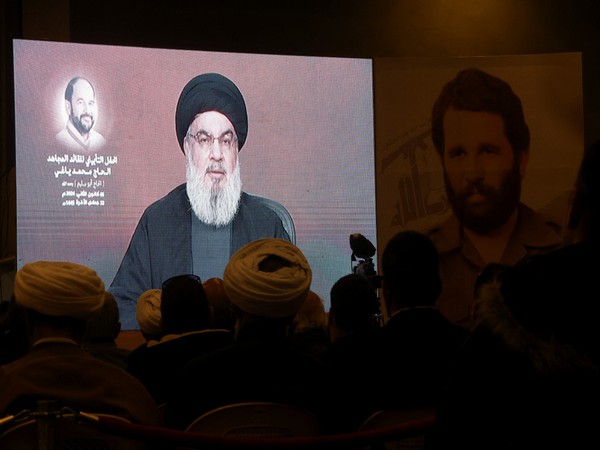Tel Aviv [Israel], September 29: The death of leader Hassan Nasrallah, who led Hezbollah in Lebanon for 32 years, is the most serious blow to the group in months.
CNA on September 29 quoted analysts as saying that the Israeli raid that killed Hezbollah leader Hassan Nasrallah will not only have an impact in Lebanon but also in the region, as this weakened force seeks to reorganize.
Amid continued airstrikes from Israel, the group now needs to appoint a new leader as the region braces for escalating tensions that could spill into a larger war.
"For years, Nasrallah and his aides have led Hezbollah and run a large part of Lebanon. This is a major change not only in Lebanon or Iran, but also in neighboring countries and the entire Middle East," said Cedomir Nestorovic, professor of geopolitics at ESSEC Asia-Pacific Business School (Singapore).
Observers say the possible successor to Mr Nasrallah could be his cousin Hashem Safieddine.
Mr. Safieddine, 60, oversees Hezbollah's political and civil affairs, including its education and financial systems. He has been on the US terrorist list since 2017.
In recent years, Mr Nasrallah has rarely appeared in public and has often been represented by Mr Safieddine, such as at the funerals of senior members of the group killed in a communications equipment explosion last week.
Following the pager blast, Mr Safieddine accused Israel of initiating a "new confrontation" and that the response to the attack would be "exceptional punishment".
With many of the group's commanders killed in the September 27 airstrike, Nestorovic said new leaders could also come from outside Lebanon, including Iran, or Syria and Iraq, where Hezbollah has close alliances with other Iran-backed groups.
Hezbollah weakened?
Although Hezbollah has been severely affected in the short term, analysts say the force is unlikely to be seriously affected in the long term because one leader can be replaced by another, according to Al Jazeera.
Meanwhile, the group still maintains its huge arsenal and military power.
Professor Mohammad Marandi at Tehran University (Iran) said Beirut is considered Hezbollah's "weakest point", because it is also home to Western embassies and people with connections to Western intelligence agencies.
Overall, however, "Israel is not capable of defeating Hezbollah militarily," he said.
Analysts say the group is now facing strategic choices amid a temporary leadership vacuum, rather than suffering a blow to its survival.
"Hezbollah is not going away," said Yezid Sayig, a senior fellow at the Carnegie Middle East Center in Lebanon. They will exercise "strategic patience" even if Iran does not step in to defend them right now, he added.
However, experts believe Hezbollah has made other mistakes that have weakened it relative to Israel.
"The big mistake Hezbollah made was allowing the Iranians to see them as too much of a proxy force. Hezbollah was very effective when they fought to liberate Lebanon, for their own people," said Professor Sultan Barakat at Hamad Bin Khalifa University (Qatar).
However, over the past year, Iran has not given them much say in how to use the weapons they have been given, while the group has miscalculated the level of violence Israel is willing to inflict, not only on the people of Gaza but also on the people of Lebanon, according to Mr. Khalifa.
Source: Thanh Nien Newspaper

